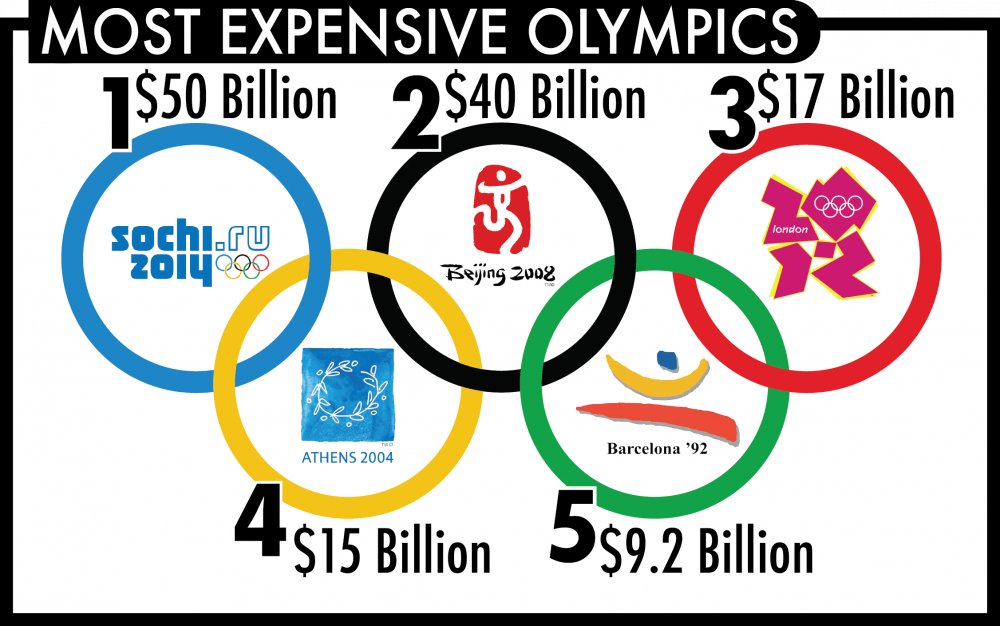Every four years the world comes together for two short weeks to celebrate the spirit of competition and national pride. It’s a time where all of us can try to forget wars, terrorism, diseases and other scary buzzwords that bombard us without mercy on a daily basis. However, it’s hard to focus on the games when swimmers can’t safely swim in the water, or the economy of the host city is in literal free fall.
The Olympics wrap up tonight in Rio, and while there was undoubtedly a spectacle of world-class athleticism there were also undertones of violence, disorder and other problems that come from a country in total disarray.
Rio was chosen as the host city a decade ago and to be fair, Brazil was in much better shape than it is today. The problems facing the country now, or at least some of them, were not an issue then. Brazil’s economy was not tanking, their president had not just been ousted on a corruption scandal and Rio police forces presumably had enough money to operate effectively.
However, at the time, some issues were still present. The Guanabara Bay, a body of water where a variety of open water events take place, was actually more polluted than it is today. This isn’t your typical “trash in the water” pollution, either. People have reported everything from sofas to dog carcasses floating in or around the bay, and the occasional human body washes up on shore.
In its bid, the government of Rio said that they would take great effort to reduce the pollution. Sewage routinely flows or leaks into the bay, and prior to these efforts, only 17 percent of it was treated. Now, the number is closer to 65 percent. Unfortunately, that doesn’t change the fact that these programs have been excruciatingly slow in execution, mostly because they’re expensive fixes, and money isn’t something Rio has a lot of right now.
A few weeks before the opening ceremony, Rio’s governor requested an emergency influx of cash from the federal government. It wasn’t a small amount either, it was 2.9 billion reais (the currency of Brazil). For those of you that aren’t majoring in international finance, that’s around $900 million.
They’re so tight on cash that police routinely protest in the streets about how they don’t have enough money for basic services. In a picture that quickly went viral, Rio police greeted tourists with a sign that said “Welcome to Hell” and warned that they would be unable to adequately protect them in the city. That’s unsettling to see when you step off the plane into a city already known to have about 16 murders a day.
The Olympics cost an astronomical amount of money. There’s infrastructure to update, venues to build, security measures to put in place; literally hundreds of things need to either be built or updated before a city can host an event of such magnitude. Some cities, like Los Angeles or Chicago, can more easily absorb these costs than others due to their already expansive infrastructures.
Rio, unfortunately, is not one of these cities and the downward spiral Brazil finds itself in certainly isn’t helping. It’s estimated now that these Olympics will be a $4 billion loss, which will probably be recuperated with taxpayer dollars.
For reference, the 2004 Olympics in Athens resulted in a $7 billion loss, and is considered to be a contributing factor to the country all but melting down in recent years.
Most of the venues in Athens sit vacant and unused since those few short weeks 12 years ago. The buildings were extremely expensive, and for what? Some cities can find use for structures like these, or already had adequate facilities to begin with. Athens and Rio do not.
This will hopefully be the last time for at least eight years I have to write a column like this. The 2020 Games are set for Tokyo, a country without the sorts of baggage that Brazil carried into 2016. The current crop of candidates for 2024 look promising, Los Angeles being among them.
Hopefully, by 2020, we aren't talking about how the 2016 Olympics were the straw that broke Brazil's back.
Reach the columnist at cjwood3@asu.edu or follow @chriswood_311 on Twitter.
Editor’s note: The opinions presented in this column are the author’s and do not imply any endorsement from The State Press or its editors.
Want to join the conversation? Send an email to opiniondesk.statepress@gmail.com. Keep letters under 300 words and be sure to include your university affiliation. Anonymity will not be granted.
Like The State Press on Facebook and follow @statepress on Twitter.




